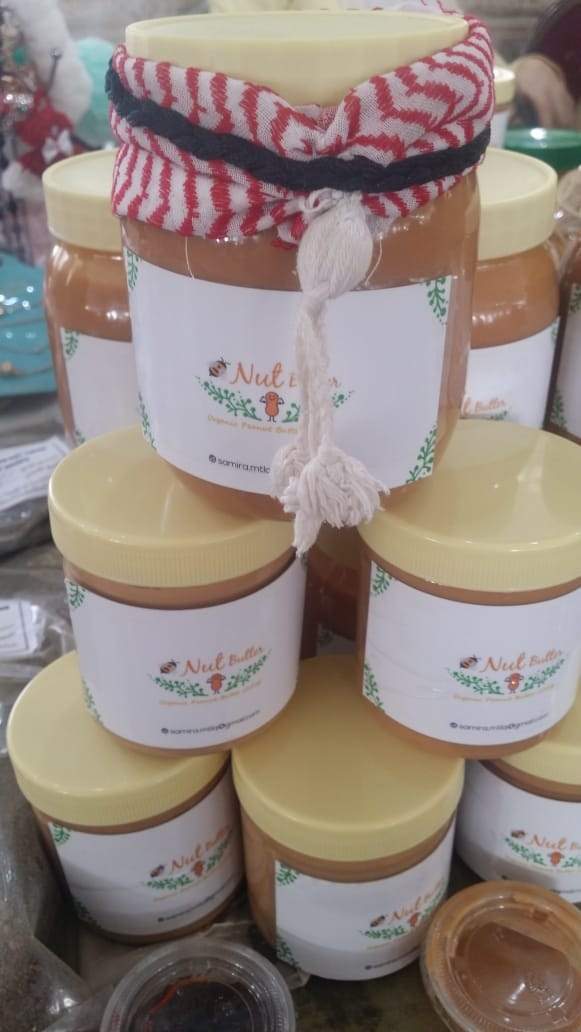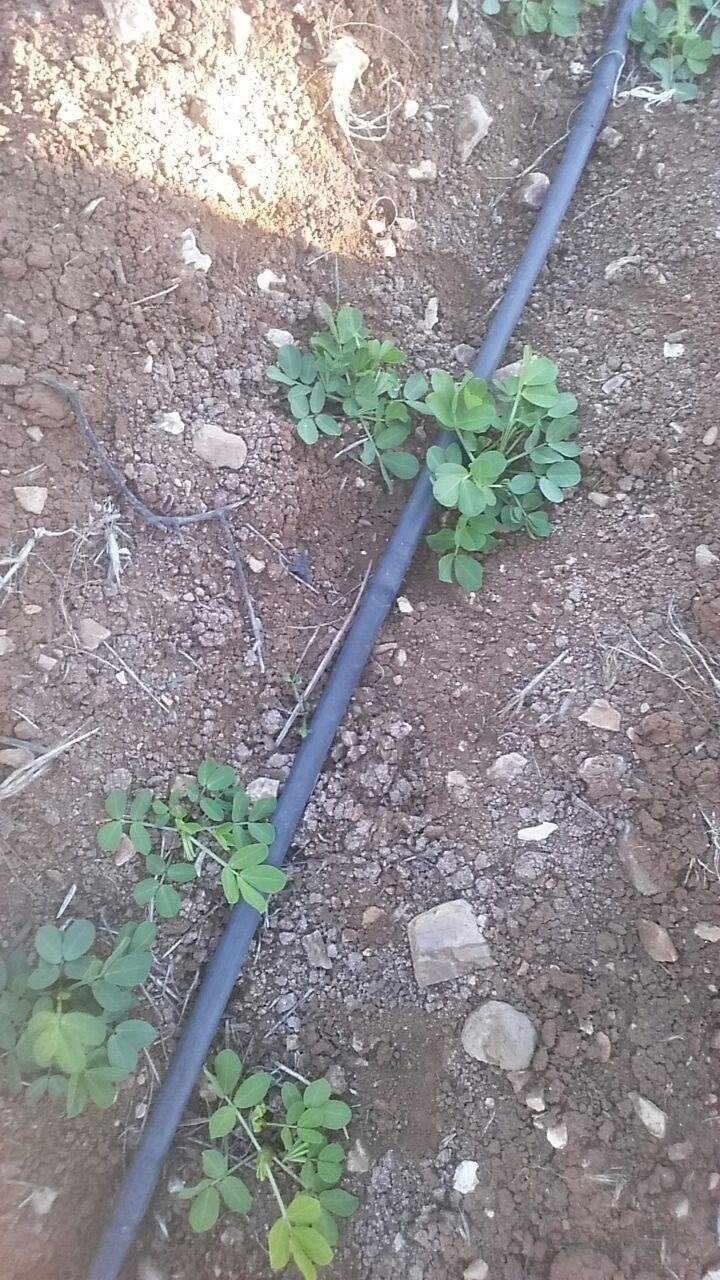AMMAN — When Samira Al-Motlaq’s five-year-old son was diagnosed with iron deficiency, she decided to feed him the right foods to make up for the deficiency of vital nutrients in his body. She was advised that peanut butter was a good choice.
اضافة اعلان
Since she lives in the remote eastern town of Rehaba, around 80km to the northeast of
Amman, and since they had a 250sq.m. courtyard in their simple rural house, Motlaq and her husband decided to grow peanuts and make the paste herself, something not done before in Jordan.
 Samira Al-Motlaq started her peanut butter project to help combat her son’s iron deficiency and now sees her products stocked on supermarket shelves. (Photos: Samira Al-Motlaq)
Samira Al-Motlaq started her peanut butter project to help combat her son’s iron deficiency and now sees her products stocked on supermarket shelves. (Photos: Samira Al-Motlaq)
“Our first experiment with peanut butter was a failure, I blame it on the bad quality of the peanut crop,” Motlaq told Jordan News. They next imported a good strain of peanut seed from Egypt and used their farm land in a small desert town to grow the imported seeds. Five months later at harvest time, the results were amazing.
“We all worked together, my husband and children on preparing the nuts as a healthy, natural food,” Motlaq said. Her blender did not do the job as it could not handle the peanut’s hard cores, so they bought a new heavy-duty mixer that was perfect for mashing the raw peanuts.
“I added some honey to the mix and called the new product ‘Super Peanut’,” Motlaq said. Chemical supplements for iron deficiency ceased to be necessary after that.
 Samira Al-Motlaq started her peanut butter project to help combat her son’s iron deficiency and now sees her products stocked on supermarket shelves. (Photos: Samira Al-Motlaq)
Samira Al-Motlaq started her peanut butter project to help combat her son’s iron deficiency and now sees her products stocked on supermarket shelves. (Photos: Samira Al-Motlaq)
Now came the packaging and the marketing of the extra quantities of the delicious, organic Super Peanut. They first gave a taste to friends and neighbors. Encouraged by the feedback and the orders, they sent samples to the Royal Scientific Society for testing. They ended up with a license to produce the new product at home, and seeing it up on supermarket shelves, and at bazaars, and a fixture in some school kids’ lunch boxes.
Her husband, Omar Halaiqa, sees his wife’s story as one of empowerment. They got married when she was barely 18, at the time he refused to let her pursue higher education, insisting that her focus should be her home and children.
“But over the years, she consistently and perseveringly followed her dream of an organic farming project, which materialized with the
Super Peanuts Company,” Halaiqa said. He said his wife aims to expand the home-based project in two years to a factory hiring 25 to 30 workers.
“That would be a beautiful dream come true,” Motlaq said, “but the best reward of this experiment is that my son is recovering.”
Read more Business





